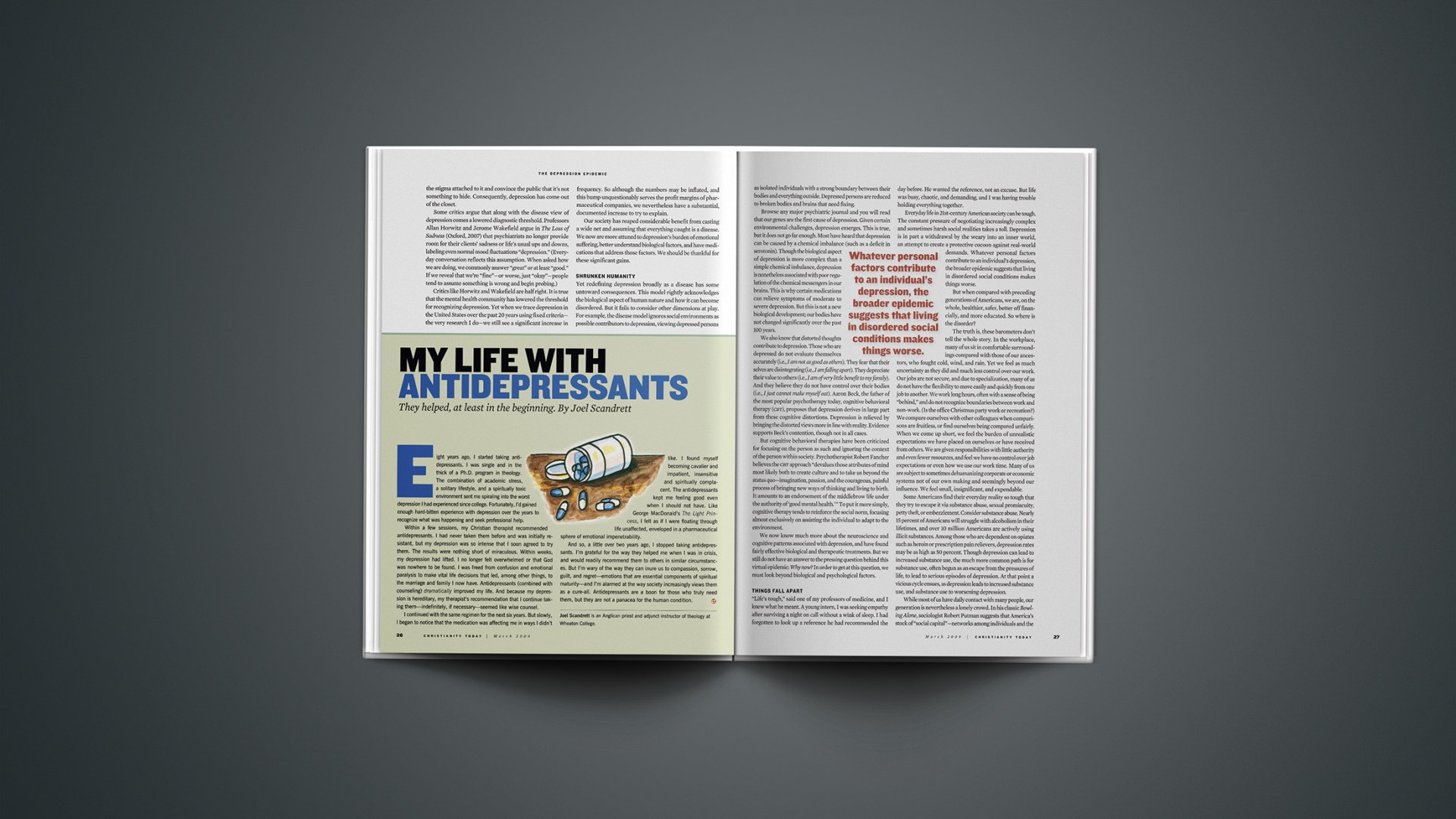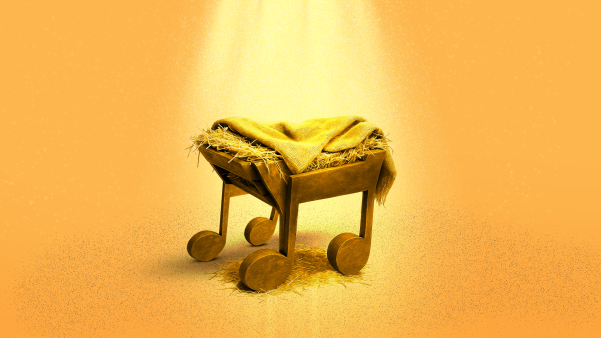Eight years ago, I started taking antidepressants. I was single and in the thick of a Ph.D. program in theology. The combination of academic stress, a solitary lifestyle, and a spiritually toxic environment sent me spiraling into the worst depression I had experienced since college. Fortunately, I’d gained enough hard-bitten experience with depression over the years to recognize what was happening and seek professional help.
Within a few sessions, my Christian therapist recommended antidepressants. I had never taken them before and was initially resistant, but my depression was so intense that I soon agreed to try them. The results were nothing short of miraculous. Within weeks, my depression had lifted. I no longer felt overwhelmed or that God was nowhere to be found. I was freed from confusion and emotional paralysis to make vital life decisions that led, among other things, to the marriage and family I now have. Antidepressants (combined with counseling) dramatically improved my life. And because my depression is hereditary, my therapist’s recommendation that I continue taking them—indefinitely, if necessary—seemed like wise counsel.
I continued with the same regimen for the next six years. But slowly, I began to notice that the medication was affecting me in ways I didn’t like. I found myself becoming cavalier and impatient, insensitive and spiritually complacent. The antidepressants kept me feeling good even when I should not have. Like George MacDonald’s The Light Princess, I felt as if I were floating through life unaffected, enveloped in a pharmaceutical sphere of emotional impenetrability.
And so, a little over two years ago, I stopped taking antidepressants. I’m grateful for the way they helped me when I was in crisis, and would readily recommend them to others in similar circumstances. But I’m wary of the way they can inure us to compassion, sorrow, guilt, and regret—emotions that are essential components of spiritual maturity—and I’m alarmed at the way society increasingly views them as a cure-all. Antidepressants are a boon for those who truly need them, but they are not a panacea for the human condition.
Joel Scandrett is an Anglican priest and adjunct instructor of theology at Wheaton College.
Copyright © 2009 Christianity Today. Click for reprint information.
Related Elsewhere:
This article and “Light When All is Dark” are part of Christianity Today‘s March cover package on “The Depression Epidemic.”
Previous articles on depression and suicide include:
The Gospel According to Prozac | Can a pill do what the Holy Spirit could not? (August 1, 1995)
To Be Happy in Jesus | Are evangelical Christians really happier than their neighbors? (March 8, 2006)
Good Question: Is Suicide Unforgivable? | Question: What is the biblical hope and comfort we can offer a suicide victim’s family and friends? (July 10, 2000)









